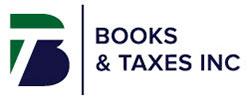What is an enrolled agent?
Enrolled agents (EAs) are America’s tax experts. EAs are the only federally-licensed tax practitioners who specialize in taxation and also have unlimited rights to represent taxpayers before the Internal Revenue Service.
What are the differences between enrolled agents and other tax preparers?
An enrolled agent is a person who has earned the privilege of representing taxpayers before the Internal Revenue Service by either passing a stringent and comprehensive examination covering both individual and business tax returns, or through experience as a former IRS employee.
Enrolled agent status is the highest credential the IRS awards.
Individuals who obtain this elite status must adhere to ethical standards and enrolled agents, like attorneys and certified public accountants (CPAs), have unlimited practice rights. This means they are unrestricted as to which taxpayers they can represent, what types of tax matters they can handle, and which IRS offices they can represent clients before.
A second group of tax return preparers also fall under the regulatory arm of the IRS, the “Registered Tax Return Preparer.” The IRS has mandated that all paid tax return preparers must be licensed and to earn that license they must show a standard of competency. However, the standard is only a minimum understanding of the preparation of a 1040 tax return. Enrolled agents (EAs) are America’s tax experts. EAs are the only federally-licensed tax practitioners who specialize in taxation and also have unlimited rights to represent taxpayers before the Internal Revenue Service. The difference lies in the depth of experience and understanding of not just how to prepare a tax return, but rather the expertise and knowledge of the tax law that may be used not only to prepare a tax return, but also to represent the taxpayer.
The National Association of Enrolled Agents (NAEA) raises the bar even further in that its members are required to maintain a standard of 30 hours of continuing education per year or total of at least 90 hours in a three year period, rather than the minimum standard for an enrolled agent of 16 hours per year with a three year total of 72 hours.
By far the enrolled agents who specialize in taxation, exhibit the highest standard of tax return preparers, only to be bested by the higher standard requirements of NAEA members.
Are there really that many tax changes each year that might affect me?
Yes. Only a qualified professional (such as an enrolled agent) with all the facts at his or her disposal can determine the appropriateness of the application of any law to a given situation.
Every year there are numerous changes to the tax laws and tax code. IRS Code sections now number from 1 to over 9,899 and encompass more than 72,500 pages.
Frequently, provisions are added while others expire. Some are indexed for inflation, so they change as well. Some are effective at the beginning of the year while others become effective on the date a particular bill or law is signed.
The tax code and regulations are very complex and Congress is continually changing the tax laws. Enrolled agents take continuing education courses each year to keep up with the changes and also have research tools at their disposal to constantly monitor updates. Most taxpayers do not have the time or the research tools to read the volumes of material that are added to or deleted from the tax code each year.
It is important to choose a tax professional, such as an enrolled agent, who keeps up with the rules and regulations and uses this expertise to do the best job possible for every taxpayer.
Yes. Only a qualified professional (such as an enrolled agent) with all the facts at his or her disposal can determine the appropriateness of the application of any law to a given situation. Every year there are numerous changes to the tax laws and tax code. IRS Code sections now number from 1 to over 9,899 and encompass more than 72,500 pages. Frequently, provisions are added while others expire. Some are indexed for inflation, so they change as well. Some are effective at the beginning of the year while others become effective on the date a particular bill or law is signed.The tax code and regulations are very complex and Congress is continually changing the tax laws. Enrolled agents take continuing education courses each year to keep up with the changes and also have research tools at their disposal to constantly monitor updates. Most taxpayers do not have the time or the research tools to read the volumes of material that are added to or deleted from the tax code each year. It is important to choose a tax professional, such as an enrolled agent, who keeps up with the rules and regulations and uses this expertise to do the best job possible for every taxpayer.
